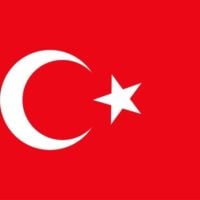Deadline: 13-Jun-23
The European Commission (EC) is inviting proposals to empower civil society in the Pacific Island Countries (PICs) to engage as actors of governance and development by advancing human rights issues, influencing policy and decision making processes and holding the Government accountable for its performance towards citizens and society at large.
The call also aims at strengthening CSOs’ capacities for project implementation, advocacy, policy analysis and monitoring of governmental programmes in selected priority areas, while also promoting the development of partnerships, including with public authorities, and facilitating inclusion of CSOs in national and local decision-making.
The action could contribute to the achievement of the following SDGs: 1 (No Poverty), 5 (Gender Equality), 6 (Clean Water and Sanitation), 8 (Decent work and economic growth), 10 (Reduced inequalities), 13 (Climate Action) and 16 (Peace, Justice and Strong Institutions).
The priority areas for this call for proposals are:
- Supporting community mitigation, adaptation and resilience to climate change
- Supporting economic empowerment and fighting inequalities in a context of post-COVID-19 recovery Key challenges
- Supporting youth
- Promoting democratic participation and accountability
Funding Information
- The overall indicative amount made available under this call for proposals is EUR 4,075,000.00. The contracting authority reserves the right not to award all available funds.
- Size of grants
- Lot 1: Fiji, Solomon Islands – max. 2,400,000.00 €
- Any grant requested under this call for proposals must fall between the following minimum and maximum amounts:
- minimum amount: EUR 400,000.00
- maximum amount: EUR 600,000.00
- Lot 2: Samoa, Tonga, FSM, RMI, Kiribati, Tuvalu – max. 1,675,000.00 €
- Any grant requested under this call for proposals must fall between the following minimum and maximum amounts:
- minimum amount: EUR 150,000.00
- maximum amount: EUR 415,000.00
- Size of grants
- Duration: The initial planned duration of an action may not be lower than 24 months nor exceed 36 months.
Location
- Actions must take place in one of the following country(ies):
Eligibility Criteria
- In order to be eligible for a grant, the lead applicant must:
- be a legal person and
- be non-profit-making and
- be a specific type of organisation such as: non-governmental organisation (CSO25), public sector operator, local authority, international (inter-governmental) organisation as defined by Article 156 of the EU Financial Regulation and
- be established27 in a Member State of the European Union or in:
- Beneficiaries listed in the Annex I to the IPA III Regulation and contracting parties to the Agreement on the European Economic Area30;
- Neighbourhood partner countries;
- developing countries and territories, as included in the list of ODA recipients published by the OECD Development Assistance Committee, which are not members of the G-20 group, and overseas countries and territories;
- developing countries, as included in the list of ODA recipients, which are members of the G-20 group, and other countries and territories, when the relevant procedure takes place in the context of an action financed by the Union under the Instrument in which they participate;
- Member countries of the OECD, in the case of contracts implemented in a Least Developed Country, as included in the list of ODA recipients. This obligation does not apply to international organisations. and
- be directly responsible for the preparation and management of the action with the coapplicant(s) and affiliated entity(ies), not acting as an intermediary
- Co-applicant(s)
- Co-applicants participate in designing and implementing the action, and the costs they incur are eligible in the same way as those incurred by the lead applicant.
- Co-applicants must satisfy the eligibility criteria as applicable to the lead applicant himself.
- Co-applicants must sign the mandate.
- If awarded the grant contract, the co-applicant(s) (if any) will become beneficiary(ies) in the action (together with the coordinator).
- In addition, please note that contracts cannot be awarded to or signed with applicants included in the lists of EU restrictive measures.
- Affiliated entities
- The lead applicant and its co-applicant(s) may act with affiliated entity(ies).
- Only the following entities may be considered as affiliated entities to the lead applicant and/or to coapplicant(s):
- Only entities having a structural link with the applicants (i.e. the lead applicant or a co-applicant), in particular a legal or capital link.
- This structural link encompasses mainly two notions:
- Control, as defined in Directive 2013/34/EU on the annual financial statements, consolidated financial statements and related reports of certain types of undertakings:
- Entities affiliated to an applicant may hence be:
- Entities directly or indirectly controlled by the applicant (daughter companies or first-tier subsidiaries). They may also be entities controlled by an entity controlled by the applicant (granddaughter companies or second-tier subsidiaries) and the same applies to further tiers of control;
- Entities directly or indirectly controlling the applicant (parent companies). Likewise, they may be entities controlling an entity controlling the applicant;
- Entities under the same direct or indirect control as the applicant (sister companies).
- Membership, i.e. the applicant is legally defined as a e.g. network, federation, association in which the proposed affiliated entities also participate or the applicant participates in the same entity (e.g. network, federation, association,…) as the proposed affiliated entities.
For more information, visit EC.









































